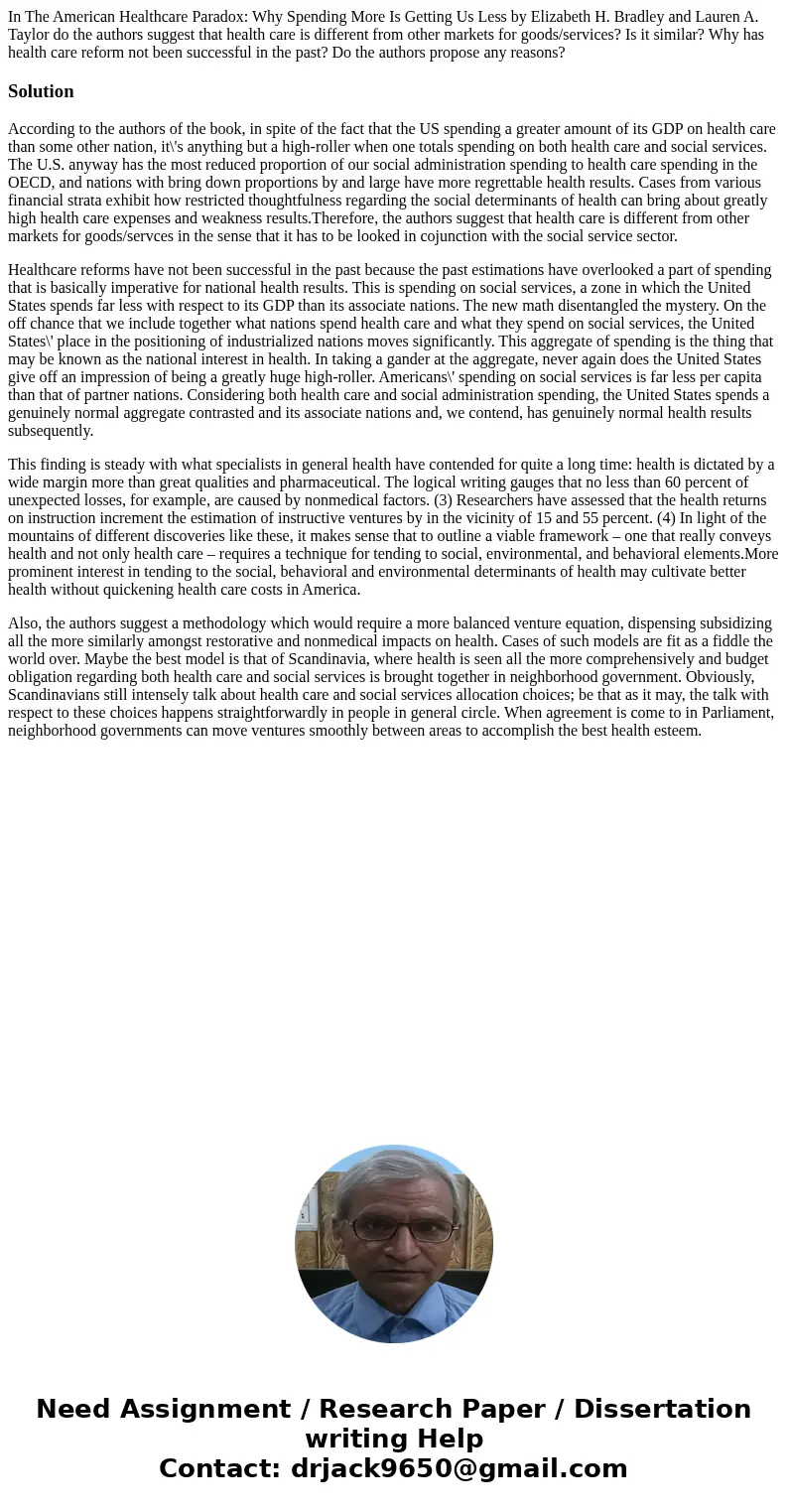In The American Healthcare Paradox Why Spending More Is Gett
In The American Healthcare Paradox: Why Spending More Is Getting Us Less by Elizabeth H. Bradley and Lauren A. Taylor do the authors suggest that health care is different from other markets for goods/services? Is it similar? Why has health care reform not been successful in the past? Do the authors propose any reasons?
Solution
According to the authors of the book, in spite of the fact that the US spending a greater amount of its GDP on health care than some other nation, it\'s anything but a high-roller when one totals spending on both health care and social services. The U.S. anyway has the most reduced proportion of our social administration spending to health care spending in the OECD, and nations with bring down proportions by and large have more regrettable health results. Cases from various financial strata exhibit how restricted thoughtfulness regarding the social determinants of health can bring about greatly high health care expenses and weakness results.Therefore, the authors suggest that health care is different from other markets for goods/servces in the sense that it has to be looked in cojunction with the social service sector.
Healthcare reforms have not been successful in the past because the past estimations have overlooked a part of spending that is basically imperative for national health results. This is spending on social services, a zone in which the United States spends far less with respect to its GDP than its associate nations. The new math disentangled the mystery. On the off chance that we include together what nations spend health care and what they spend on social services, the United States\' place in the positioning of industrialized nations moves significantly. This aggregate of spending is the thing that may be known as the national interest in health. In taking a gander at the aggregate, never again does the United States give off an impression of being a greatly huge high-roller. Americans\' spending on social services is far less per capita than that of partner nations. Considering both health care and social administration spending, the United States spends a genuinely normal aggregate contrasted and its associate nations and, we contend, has genuinely normal health results subsequently.
This finding is steady with what specialists in general health have contended for quite a long time: health is dictated by a wide margin more than great qualities and pharmaceutical. The logical writing gauges that no less than 60 percent of unexpected losses, for example, are caused by nonmedical factors. (3) Researchers have assessed that the health returns on instruction increment the estimation of instructive ventures by in the vicinity of 15 and 55 percent. (4) In light of the mountains of different discoveries like these, it makes sense that to outline a viable framework – one that really conveys health and not only health care – requires a technique for tending to social, environmental, and behavioral elements.More prominent interest in tending to the social, behavioral and environmental determinants of health may cultivate better health without quickening health care costs in America.
Also, the authors suggest a methodology which would require a more balanced venture equation, dispensing subsidizing all the more similarly amongst restorative and nonmedical impacts on health. Cases of such models are fit as a fiddle the world over. Maybe the best model is that of Scandinavia, where health is seen all the more comprehensively and budget obligation regarding both health care and social services is brought together in neighborhood government. Obviously, Scandinavians still intensely talk about health care and social services allocation choices; be that as it may, the talk with respect to these choices happens straightforwardly in people in general circle. When agreement is come to in Parliament, neighborhood governments can move ventures smoothly between areas to accomplish the best health esteem.

 Homework Sourse
Homework Sourse